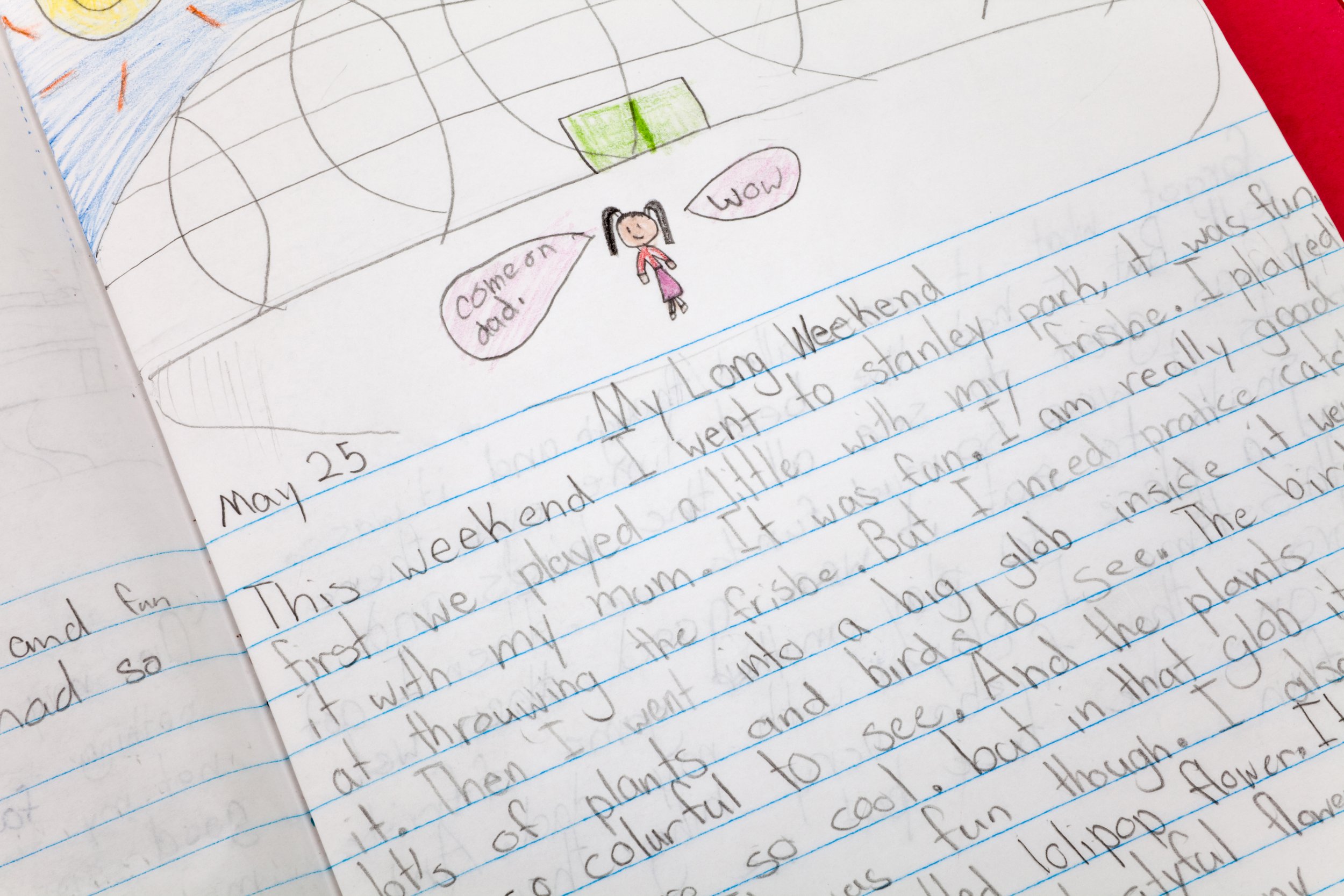
Learning to Journal with Your Child
Welcome to the wonderful world of journaling! In this activity, you and your child will embark on a journey of self-discovery and expression through writing. Journaling is a fantastic way to encourage reflection, creativity, and literacy skills in children. Whether it's capturing daily thoughts, documenting adventures, or expressing emotions, journaling can be a valuable tool for personal growth and development.
Materials Needed:
1. Journals or notebooks (can be purchased or homemade)
2. Pens, pencils, markers, or colored pencils
3. Optional: Stickers, washi tape, or other decorative supplies
Instructions:
1.Introduce the Concept of Journaling:
Start by explaining what journaling is and why it's beneficial. You can say something like, "Journaling is a way to write down your thoughts, feelings, and experiences. It's like having a conversation with yourself on paper."
2. Choose a Journal:
Help your child select a journal or notebook that they feel excited about using. It could be a blank notebook, a themed journal, or even a DIY journal made from recycled materials.
3. Set a Regular Journaling Time:
Establish a consistent time each day or week for journaling with your child. This could be in the morning, before bedtime, or whenever works best for your family's schedule.
4. Encourage Freewriting:
Encourage your child to write freely without worrying about grammar, spelling, or punctuation. The goal is to express themselves honestly and authentically.
Provide prompts or writing exercises to help spark creativity and inspiration if needed. For example, you could ask, "What was the best part of your day?" or "If you could travel anywhere in the world, where would you go and why?"
5. Explore Different Journaling Techniques:
Introduce your child to different journaling techniques such as:
Reflective journaling: Writing about thoughts and feelings from the day
Gratitude journaling: Listing things they're grateful for
Creative journaling: Drawing, doodling, or adding artwork to their journal entries
Encourage them to experiment with different styles and find what works best for them.
6. Lead by Example:
Journal alongside your child to show them that journaling is a meaningful and enjoyable activity for people of all ages.
Share your own journal entries with your child (if appropriate) to foster open communication and connection.
7. Celebrate Progress and Growth:
Celebrate your child's journaling efforts and milestones along the way. Acknowledge their dedication and creativity, and praise their progress in developing their writing skills.
Use journaling as an opportunity to celebrate and reflect on achievements, big or small.
Tips:
Be patient and supportive as your child explores journaling. It may take time for them to find their voice and develop a consistent writing habit.
Encourage privacy and respect for your child's journaling space. Let them know that their thoughts and feelings are safe and respected.
Make journaling a positive and enjoyable experience by keeping it lighthearted and fun.
Enjoy the journey of journaling with your child! Happy writing!
